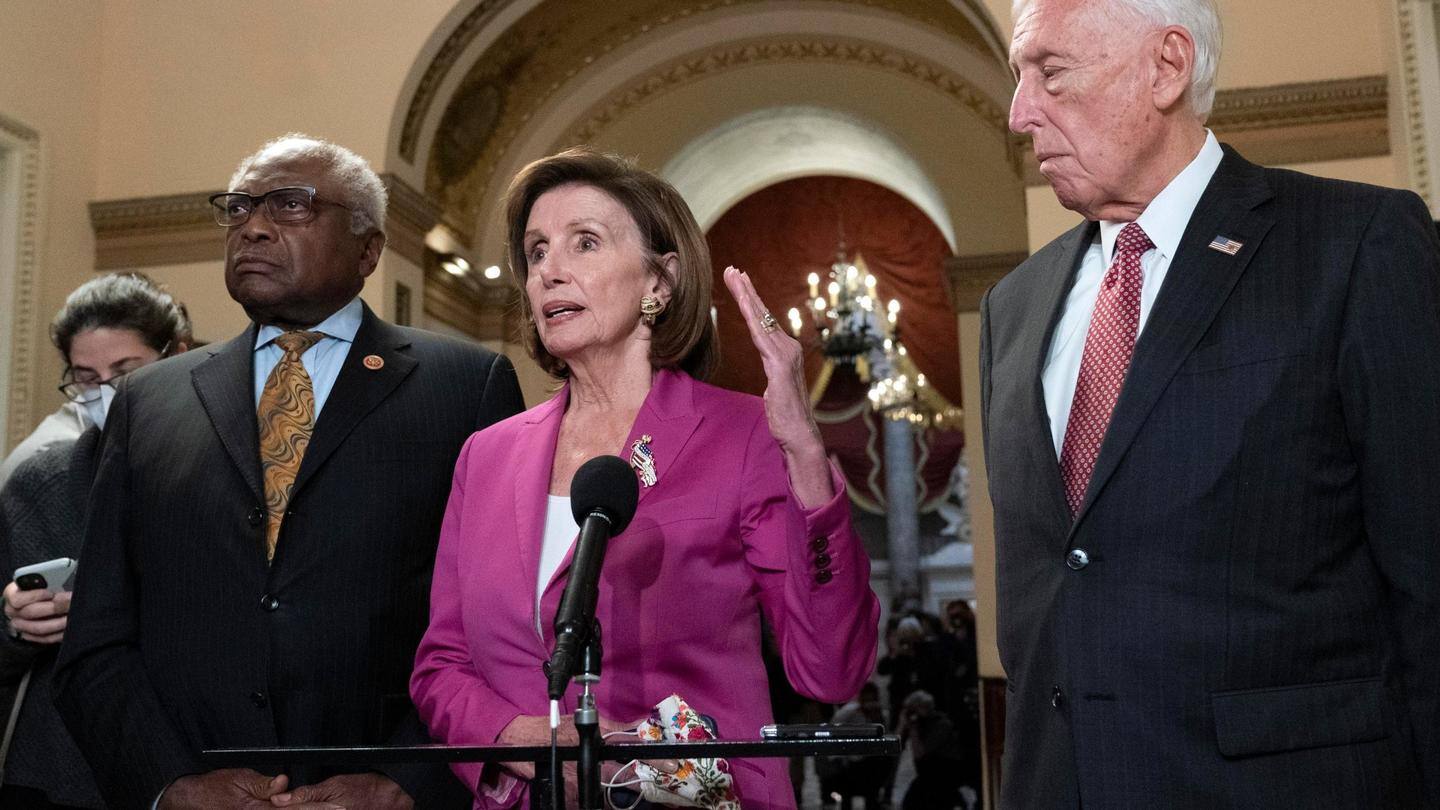
US: House passes $1tn infrastructure bill, heads to Biden's desk
What's the story
Following months of tense negotiations and a daylong standoff, the US House of Representatives has passed a $1 trillion infrastructure bill Friday night, sending it to President Joe Biden to be signed into law.
This came after Democrats overcame internal divides as progressives and centrists ended the standoff to pass the $1 trillion package, including crucial investments in roads, railways, and internet, among others.
Details
The bill was passed in a 228-206 vote
The bipartisan infrastructure bill was passed in a 228-206 vote, marking a substantial political win for Democrats and fulfilling a major priority for the domestic agenda of Biden, who promised of approving some bipartisan legislation.
Notably, it was passed with the support of 13 Republicans who joined 215 Democrats to back the legislation. However, the bill saw six Democrat progressives vote against it.
Massive upgrade
What exactly does the $1tn infrastructure package cover?
The $1 trillion infrastructure bill, which was passed by the Senate back in August, aims to fund a massive infrastructure upgrade of the roads, bridges, railways, airports, seaports, and other transportation infrastructure in the United States along with expanding the broadband internet services in the country.
Earlier, Biden had promised that this would not only create more jobs but also boost America's competitiveness.
The second pillar
Democrats struggled to unite behind Build Back Better
The approval of this bill also marks a milestone for the first of Biden's two-pronged domestic economic agenda.
However, the House had to postpone the vote on the second pillar of Biden's agenda—the $1.75 trillion Build Back Better package—as Democrats struggled to garner support for it. The package involves expanding social welfare programs with massive investments in health, education, and tackling climate change.
Postponed
Centrists demand estimates of social spending plan's budgetary effects
While Democrat leaders hoped to get both bills—infrastructure and Build Back Better—passed, the latter was postponed as centrists demanded nonpartisan Congressional Budget Office's (CBO) estimates of its budgetary effects—which reportedly could take weeks.
However, after hours-long negotiations, some centrists said they will vote on the social spending package by November 20 if the CBO's estimates are in line with that of the White House.
Build Back Better
These are the areas covered under Build Back Better
To note, Build Back Better is a social welfare policy and climate package—accounting for much of Biden's agenda—which includes provisions on a range of areas like healthcare, pricing of prescription drugs, childcare, eldercare, housing, taxes, immigration, and climate change.
While the vote on it has been delayed due to moderate Democrats' demand for CBO estimates, Republicans, on the other hand, oppose the bill uniformly.